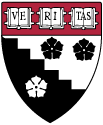Assessment of Learning Computational Concepts in Scratch
« Teaching with Scratch
- Login to post comments
Hello ScratchEd community!
I am a doctoral candidate studying School Psychology at Temple University in Philadelphia, PA. I am conducting a dissertation study using the Creative Computing Curriculum for Scratch with ten to twelve year-old students during the summer of 2017 in an elementary/middle school in West Philadelphia. Among other things, I will be assessing student learning of computational concepts in a debugging task as described by Brennan and Resnick (2012).
The design of the study is a randomized control trial, meaning that one group of students will go through the Creative Computing Curriculum in its entirety, while another group of students will attend regularly scheduled daily activities. Following the first group of students, the second group will then go through the Creative Computing Curriculum so that all students involved in the study have the opportunity to learn and engage with Scratch and the activities within the Creative Computing Curriculum.
Each group will take a pre-test of their knowledge of computational concepts, which will be language-based and similar to The Fairy Assessment (Werner, Denner, Campe, & Kawamoto, 2012), as well as a post-test that will be comprised of a series of bugged Scratch programs that students will be asked to debug, or add/modify a function or feature.
I am wondering if anyone in the ScratchEd community has developed sample Scratch projects with bugs that may be able to be used to test whether or not students understand specific computational concepts, e.g., sequences, loops, parallelism, events, conditionals, and data structures. If so, I would love to hear about how you developed the projects, and if you would be willing to lend the sample projects for use in my dissertation study.
Feel free to respond via ScratchEd, or by email if that is preferable (kevin.donley@temple.edu).
References:
Brennan, K., & Resnick, M. (2012). New frameworks for studying and assessing the development of computational thinking. In Annual American Educational Research Association Meeting, Vancouver, BC, Canada.
Werner, L., Denner, L., Campe, S., & Kawamoto, D. C. (2012). The Fairy Performance Assessment: Measuring Computational Thinking in Middle School. In Proceedings of the 44th ACM technical symposium on computer science education (SIGSCE ’12) (pp. 215-220). New York, NY: ACM.
I am a doctoral candidate studying School Psychology at Temple University in Philadelphia, PA. I am conducting a dissertation study using the Creative Computing Curriculum for Scratch with ten to twelve year-old students during the summer of 2017 in an elementary/middle school in West Philadelphia. Among other things, I will be assessing student learning of computational concepts in a debugging task as described by Brennan and Resnick (2012).
The design of the study is a randomized control trial, meaning that one group of students will go through the Creative Computing Curriculum in its entirety, while another group of students will attend regularly scheduled daily activities. Following the first group of students, the second group will then go through the Creative Computing Curriculum so that all students involved in the study have the opportunity to learn and engage with Scratch and the activities within the Creative Computing Curriculum.
Each group will take a pre-test of their knowledge of computational concepts, which will be language-based and similar to The Fairy Assessment (Werner, Denner, Campe, & Kawamoto, 2012), as well as a post-test that will be comprised of a series of bugged Scratch programs that students will be asked to debug, or add/modify a function or feature.
I am wondering if anyone in the ScratchEd community has developed sample Scratch projects with bugs that may be able to be used to test whether or not students understand specific computational concepts, e.g., sequences, loops, parallelism, events, conditionals, and data structures. If so, I would love to hear about how you developed the projects, and if you would be willing to lend the sample projects for use in my dissertation study.
Feel free to respond via ScratchEd, or by email if that is preferable (kevin.donley@temple.edu).
References:
Brennan, K., & Resnick, M. (2012). New frameworks for studying and assessing the development of computational thinking. In Annual American Educational Research Association Meeting, Vancouver, BC, Canada.
Werner, L., Denner, L., Campe, S., & Kawamoto, D. C. (2012). The Fairy Performance Assessment: Measuring Computational Thinking in Middle School. In Proceedings of the 44th ACM technical symposium on computer science education (SIGSCE ’12) (pp. 215-220). New York, NY: ACM.


Here's a link for my Debug-it! studio with 5 new projects. This projects were created during the CCOW I attended in 2013.
https://scratch.mit.edu/studios/226158/
Good luck with your work!
Best,
Heloisa
Some people are responding via Twitter: https://twitter.com/ScratchEdTeam/status/829408755834093568/photo
Best,
Willa